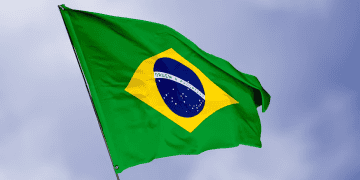In an effort to address escalating food prices, the Brazilian government has announced the removal of import taxes on several essential food products, including sugar, coffee, corn, and beef. Vice President Geraldo Alckmin disclosed these measures on Thursday, stating that they aim to reduce food costs for consumers without harming domestic producers.
The policy change also encompasses the elimination of import duties on biscuits, pasta, olive oil, sunflower oil, and sardines. Additionally, the import quota for palm oil will be increased to 150,000 metric tons. These measures are pending approval from a government trade body and are expected to take effect in the coming days.
President Luiz Inácio Lula da Silva, commonly known as Lula, has acknowledged the issue of rising food prices while maintaining that overall inflation remains under control. However, recent data indicates that Brazil’s annual inflation rate rose to 4.96% in mid-February, the highest since late 2023. Food and drink prices specifically increased by an estimated 7.12% over the year leading up to February.
The central bank has noted a significant rise in food costs, attributing it to factors such as drought conditions and higher beef prices. In response, the bank has maintained its benchmark interest rate at 13.25% to combat inflation.
Currently, Brazil imposes a 9% import tax on coffee and a 7.2% tax on corn, while import duties for beef and sugar can reach up to 10.8% and 14%, respectively. The new measures will reduce these rates to zero. Vice President Alckmin, who also serves as the Minister of Industry, Trade, and Development, emphasized that the tax eliminations are designed to complement domestic food production rather than replace it, thereby not harming local farmers.
These initiatives come amid a decline in President Lula’s approval rating, which has fallen to 24%, the lowest level during his three terms as president. The government hopes that reducing food prices will alleviate the financial burden on consumers and improve public sentiment.
Additional measures announced include accelerating health safety testing of food products and boosting food stocks through the crop agency Conab. These steps are part of a broader strategy to ensure food affordability and availability for Brazil’s population of over 213 million people.
Economists have expressed skepticism about the impact of these measures, citing Brazil’s position as a leading global producer and exporter of agricultural commodities. Felipe Camargo, an economist at Oxford Economics, noted that most of the targeted items are produced domestically, suggesting that the tax cuts may have a limited effect on reducing prices.
Despite these concerns, the government remains committed to implementing policies aimed at curbing inflation and easing the economic pressures faced by Brazilian consumers.
Get the latest supply chain report news insights at The Supply Chain Report. For international trade resources, visit ADAMftd.com.
#BrazilFoodPolicy #ImportTaxCuts #FoodInflation #BrazilEconomy #LulaGovernment #FoodAffordability #AgricultureTrade #InflationControl #BrazilianConsumers #GlobalFoodPrices















